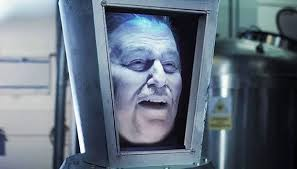Fan theories have become an integral part of the modern entertainment experience. With the rise of social media and online communities, fans now have platforms to speculate, analyze, and theorize about their favorite TV shows and movies like never before. These theories often gain so much traction that they start influencing the creators themselves, sometimes even altering the direction of the narrative. Let’s dive into the fascinating world of fan theories and explore seven popular examples that have left a lasting impact on TV shows and movies.
1. The "R + L = J" Theory in Game of Thrones
One of the most famous fan theories ever, "R + L = J," captivated Game of Thrones fans for years. The theory proposed that Jon Snow was not the illegitimate son of Ned Stark but rather the child of Ned's sister, Lyanna Stark, and Rhaegar Targaryen. This theory gained widespread popularity long before it was confirmed in the series, leading to intense speculation and discussions. When the show eventually revealed this to be true, it not only validated the fans' theories but also significantly shaped the narrative’s direction, especially regarding Jon's role in the final season.
2. The Pixar Theory
The Pixar Theory is a fan-created timeline that suggests all Pixar movies exist in the same universe and are interconnected through a complex narrative involving the progression of AI and animals gaining sentience. Although Pixar has never officially confirmed this theory, the idea has become so ingrained in the fanbase that it’s hard to watch a Pixar movie without considering its potential connections to others. Some argue that this theory has influenced Pixar’s Easter eggs and the subtle ways their films reference one another.
3. The "Walt Disney Cryonics" Theory
A long-standing urban legend and fan theory is that Walt Disney had his body cryogenically frozen in the hopes of being revived in the future. Although this has been debunked numerous times, the theory has persisted in popular culture. It has even influenced certain plotlines and references in movies and TV shows, such as in Futurama and The Simpsons. The persistence of this theory demonstrates how fan speculation can become a part of a brand's mythos, regardless of its factual accuracy.
4. The "Ferris Bueller's Day Off" Fight Club Theory
One quirky fan theory suggests that the character of Ferris Bueller in Ferris Bueller's Day Off is merely a figment of Cameron Frye’s imagination, similar to how Tyler Durden is in Fight Club. The theory posits that Ferris is the embodiment of everything Cameron wishes he could be—confident, carefree, and rebellious. While this theory is more interpretive and hasn’t been confirmed by the creators, it adds a new layer of depth to the movie, allowing fans to view it through a psychological lens, and showcases how fan theories can change the way we perceive films.
5. The "Jar Jar Binks is a Sith Lord" Theory in Star Wars
The theory that Jar Jar Binks, one of the most disliked characters in the Star Wars franchise, is actually a Sith Lord working alongside Emperor Palpatine is one of the wildest fan theories to gain traction. According to this theory, Jar Jar’s bumbling persona is merely a façade, and he is secretly a master manipulator behind many of the galaxy's events. This theory became so popular that it even reached Star Wars actor Ahmed Best, who played Jar Jar. While the theory was never confirmed, it shows how fan creativity can breathe new life into even the most unlikely characters.
6. The "James Bond is a Codename" Theory
A popular theory in the James Bond universe suggests that "James Bond" is not the name of a single person but rather a codename used by different agents over the years. This would explain why Bond has been portrayed by different actors with varying personalities but the same name. While the creators have not confirmed this theory, it has influenced discussions about the franchise's continuity and character development. The theory allows fans to reconcile the differences between the various portrayals of Bond, adding an extra layer of intrigue to the series.
7. The "Breaking Bad is a Prequel to The Walking Dead" Theory
This fan theory suggests that Breaking Bad is a prequel to The Walking Dead, proposing that the blue meth created by Walter White is the cause of the zombie outbreak in the latter series. The theory gained traction when The Walking Dead featured several Easter eggs that seemed to nod to Breaking Bad, such as a red Dodge Challenger and a character who resembles Walter White. While this theory is more of a fun crossover idea than a serious narrative, it highlights how fan theories can create exciting connections between different shows, fostering a sense of shared universes.
Conclusion:
Fan theories have a unique power to shape the way we interact with and perceive our favorite TV shows and movies. Whether they turn out to be true, like "R + L = J," or remain in the realm of speculation, these theories enrich the viewing experience, encouraging fans to engage more deeply with the stories they love. As entertainment continues to evolve, fan theories will undoubtedly continue to play a significant role in the way narratives are crafted and consumed.
So, the next time you find yourself diving down a rabbit hole of fan theories, remember that you might just be onto something that could shape the future of the story you're watching!











0 Comments